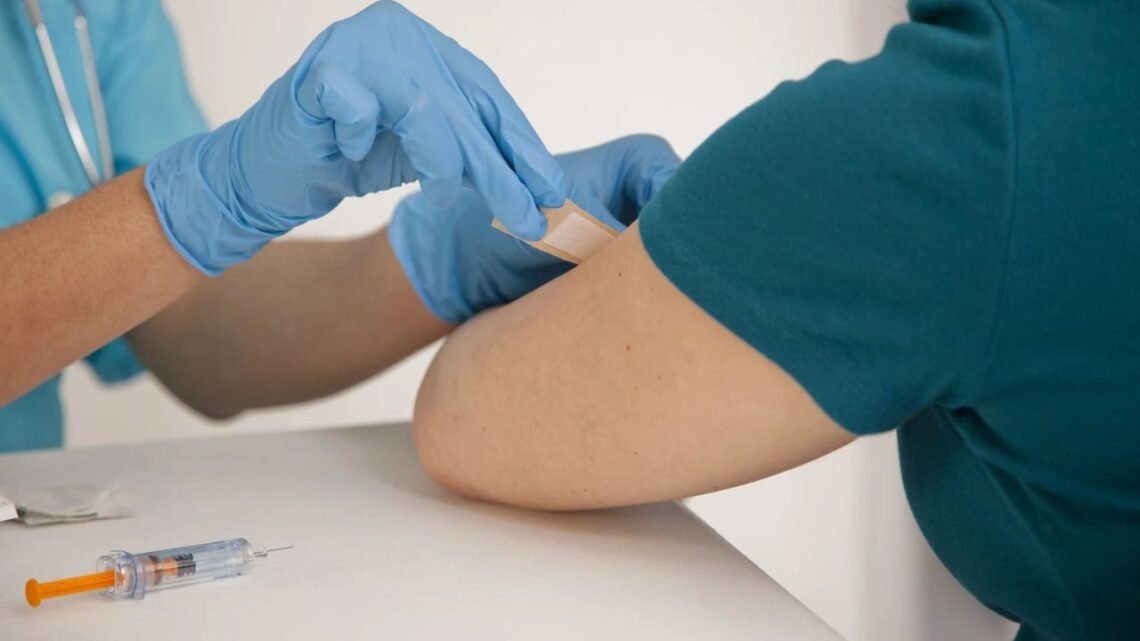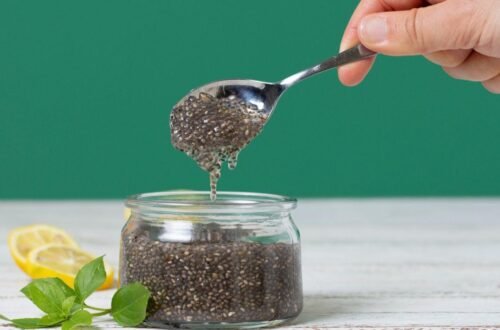One of the best ways of remaining healthy during the flu season is by taking a flu shot every year. However, after vaccination, one may ask What to Avoid After Flu Shot so that it becomes effective. Although the vast majority of individuals do not have any problems and keep going about their day, there are a couple of precautions that can help to make the process of recovery a bit easier and make your body react more to the vaccine.
This guide tells you all that you must not do now that you have had your flu shot and what you can safely do. Such steps will not only enable you to make the nasty experience less painful, but will also help in the build-up of immunity against the flu by the immunity.
What Is a Flu Shot and How Does It Work?
Flu shot is a seasonal vaccination that helps to cover against the influenza virus. It has killed or attenuated virus particles which assist your body in making antibodies without falling ill. These antibodies will combat the flu virus in case you were exposed to the flu virus at a later stage.
The vaccine is changed annually to suit the most prevalent types of flu that one is likely to have during that season. The information on what you should not do after taking flu shot will allow your immune system to build such protection efficiently.
| Flu Shot Facts (2025 Update) | Details |
| Recommended Frequency | Once every year |
| Time for Full Protection | 10 to 14 days after vaccination |
| Common Side Effects | Arm soreness, mild fever, fatigue |
| Best Time to Get It | September to October |
What to Avoid After Flu Shot?

Being aware of what to avoid after flu shot will enable you to avoid mild side effects, and get your body used to it. The majority of the individuals complain of being a bit uncomfortable but there are some activities or substances that could end up affecting your body’s immune system. The following are the primary things that you should avoid during the first one or two days following the vaccination.
1. Avoid Intense Exercise or Heavy Physical Activity
You might be tempted to get back into your gym regime, however, one should not engage in strenuous activity within the 24 hours of having shot. The flu vaccine activates your immune system and overstrained workouts are not needed in your body too.
Light physical activities like walking or stretching are acceptable but not the weightlifting exercise or running or high-energy activities until you get yourself back on track. Your immune system is being allowed to put money into antibodies due to the efforts of Rest.
| Activity Type | Recommended After Flu Shot? | Reason |
| Light Walking | Yes | Improves circulation and reduces stiffness |
| Yoga or Stretching | Yes, gently | Promotes movement without overexertion |
| Weightlifting | No | May increase muscle soreness |
| High-Intensity Cardio | No | Can strain the immune system |
2. Avoid Alcohol for a Day or Two
Alcohol has the potential to impair the functions of your body to recover through dehydrating and reducing immune function. A single glass of alcohol may not be harmful, but it is a better option to never drink alcohol for at least 24 or 48 hours.
Instead, it is better to drink water or fresh juice in order to keep your body hydrated and to be healthy in your energy level. When you are asking what to avoid after flu shot, alcohol has to be one of the first things on your list.
3. Painkillers Should be avoided unless necessary
Taking some drugs like ibuprofen or acetaminophen, which can be bought without a prescription, to feel better or cooler may appear effortless. But a number of studies show that painkillers will decrease the antibody reaction in your body to vaccines.
Should a little of the stuff be taking its toll, then have recourse to less elaborate remedies, such as applying cold in the part, or shaking the arm down. It does not require drug treatment unless the pain becomes unbearable and you visit the doctor.
4. Prevent Stress and Sleep Deficit
Poor sleep and stress will slow down the recovery and suppress the immune response to vaccines. You have to get at least seven or eight hours of good sleep after your shot. Rest facilitates the process of healing your body as well as making the vaccine work as intended.
It is better to avoid stressful experiences, watch screens less, and keep the atmosphere in the room calm. With rest, a body will react to the flu shot better and will have fewer side effects.
5. Do not Have Close contacts with the sick people
Flu shot no longer provides instant protection. The amount of time it takes to acquire immunity is approximately two weeks. The rule here is to keep at a distance from those who are ill or who have flu-like symptoms.
This prevents your chances of contracting a disease before the vaccine has taken effect. Good hygiene and distancing in densely populated areas are easy but worthwhile measures.
Foods and Drinks to Avoid After Flu Shot
One is not limited to strict food restrictions following vaccination, however, diet is a significant factor in recovery. Keep off processed food, sweet drinks, and caffeine which may lead to inflammation or dehydration. Instead, concentrate on nutritious foods which boost the immune system.
| Food Type | Recommendation | Effect on Body |
| Processed Foods | Avoid | May increase inflammation |
| Sugary Beverages | Avoid | Causes dehydration and fatigue |
| Fruits and Vegetables | Include More | Boosts immunity with vitamins |
| Lean Protein | Include More | Helps in cell repair and recovery |
| Alcohol | Avoid | Can reduce immune function |
What You Should Do After a Flu Shot?
It is also necessary to understand how to act after a flu vaccination to make sure that your organism receives the most comfortable recovery. Little steps will produce a significant difference in the way you will feel afterward.
- Move your arm gently to reduce soreness.
- Apply a cool compress to the injection site if needed.
- Drink plenty of water to stay hydrated.
- Rest if you feel tired or have a mild fever.
- Eat balanced meals with fruits, vegetables, and proteins.
These practices support faster healing and ensure your immune system functions efficiently.
Avoid Getting Another Vaccine Too Soon
It is essential to spaced out the vaccinations. An additional vaccine within a relatively short period before or after a flu vaccination can impact your immune response. In case you have recently had a vaccine such as a COVID-19 vaccine or an additional kind of vaccine, you should discuss the flu shot with your doctor.
There are very few instances in which a particular vaccine cannot be given safely together but the time taken must be considered individually. The right time to eat can be recommended by your healthcare provider.
Avoid Ignoring Side Effects
The common side effects of vaccination are mild side effects such as mild fever, fatigue, or muscle soreness. However, fail to overlook the symptoms in the event the symptoms are extreme and take over 48 hours.
Request medical attention in case of high fever, difficulty in breathing and swelling at the injection area. Early treatment is preventive and free of complications.
When to Get a Flu Shot for Best Results
The peak season of the flu is usually in the months of December and February. September or October is the most appropriate time to be vaccinated before flu activities rise. Early vaccination will provide your body with time to become immune.
You have time to shoot later in the season even after you have missed that window. Vaccination is good any time because the flu viruses may take up to several months to finish.
| Month | Flu Activity | Recommended for Vaccination |
| September | Moderate | Ideal time to vaccinate |
| October | High | Strong protection period |
| November | High | Still effective |
| December–February | Very High | Late vaccination still helpful |
Who Should Avoid the Nasal Spray Version?

Naresal nasal spray flu vaccine is an active-virus vaccine, of which not everyone is eligible. Pregnant women and those who are under the age of two years should not take it, as well as adults who are older than 50 years of age.
Patients who have poor immunity, those having chronic diseases or those individuals undergoing chemotherapy should instead use the conventional inactivated flu shot. You must never leave out communicating to your doctor about your medical history prior to the decision making the type of vaccine to be administered.
Flu Shots: Misconceptions.
There are a number of myths encircling flu shots. There is the need to distinguish between fact and fiction.
- The flu shot does not cause the flu, it uses the inactive strains of the viruses.
- Flu shots are also required to ensure healthy individuals do not infect other individuals.
- Flu vaccine immunity is only temporary and once the season is over, one is supposed to have it again each year.
Dispelling these myths means that increasing numbers of individuals will remain safe and aware of what not to do after a flu shot to gain maximum benefits.
Conclusion
One should also be aware of what to avoid following flu shots to make sure that you strengthen your immune system and prevent unpleasant side effects. Avoid alcohol, hard work and use of unnecessary drugs. Remember to rehydrate, get enough rest and nutritious food to ensure the recovery process is easy.
By following these simple steps, you would not only be able to make your flu shot more effective but you would also be in a position to maintain good immunity throughout the season. The shot itself is not as important as its after-effect.
Also Read About: Does Creatine Break a Fast? Truth or Myth





